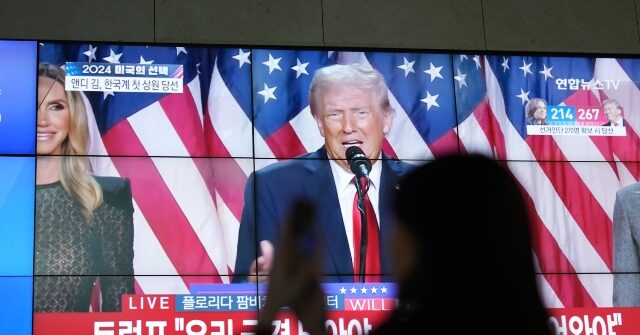Kim Tae-hyo, the deputy national security adviser for South Korea, articulated the nation’s resolve to bolster its security arrangements with the United States in light of the upcoming U.S. presidential administration. He emphasized the goal of establishing a “perfect Korea-U.S. security posture” to ensure steadfast national security. The South Korean government is keen to enhance the global strategic alliance with its American counterpart, acknowledging the importance of a robust partnership amidst evolving global and regional dynamics. This commitment reflects Seoul’s broader national security strategy, which is significantly influenced by the perceived threats from North Korea and the changing geopolitical landscape, especially with potential shifts in U.S. leadership.
To facilitate this strengthened alliance, a senior official from the South Korean presidency noted that prompt communication will be established between President Yoon Suk-yeol and the president-elect. This direct dialogue aims to explore possibilities for enhancing bilateral cooperation, especially in defense and security matters. Additionally, South Korea dispatched seasoned diplomat Lee Tae-woo to Washington earlier to expedite discussions regarding the renewal of the Special Measures Agreement (SMA). This agreement, originally enacted in 1991, is crucial for determining South Korea’s financial contributions toward U.S. military presence on the Korean Peninsula. The potential rise of Donald Trump in the 2024 election raised concerns for Seoul, given Trump’s previous demands for exorbitant increases in South Korea’s defense spending.
During Trump’s first term, he and former Defense Secretary Mark Esper suggested that South Korea, as a prosperous ally, should significantly enhance its defense spending, with Trump advocating for a staggering reimbursement increase. In contrast, South Korea’s offer of a 13% hike was seen as insufficient by the U.S. administration, which positioned an increase closer to 400% as more appropriate. The Biden administration, however, managed a relatively modest agreement for a five-year term in October, raising South Korea’s annual contributions to about $1.09 billion—a mere 8.3% increase, despite Trump’s earlier assertions that the country could be paying as much as $10 billion annually.
In anticipation of a possible Trump victory, South Korea is strategizing on increasing its imports of oil and gas from the United States to address the trade imbalance with America. Meetings involving government officials, corporate leaders, and think tanks have been held to discuss ways to adjust energy procurement strategies post-election. This proactive approach mirrors South Korea’s previous initiatives, where the government sought to enhance energy purchases from the U.S. once Trump entered office in 2016. Current conditions leveraging geopolitical instability in the Middle East are seen as potential incentives for South Korean enterprises to diversify their oil import sources, aligning with a broader economic strategy to strengthen U.S.-Korean ties.
Bloomberg reported that South Korea is concurrently developing a public relations initiative aimed at garnering favor with a potential second Trump administration. The intent is to highlight South Korean companies’ investments and their role in American job creation, thus portraying an image of mutual benefit in the economic sphere. This strategy aligns with President Yoon’s public congratulatory message to Trump, where he expressed optimism about the future of the ROK-U.S. alliance under Trump’s leadership, suggesting a cooperative approach to ongoing diplomatic and economic collaborations between the two allies.
Public sentiment in South Korea appears to be apprehensive regarding the impact of the upcoming U.S. election. A Gallup International poll indicated that a significant 83% of South Koreans believe the election’s outcome would affect their nation, reflecting a keen awareness of the interconnectedness of U.S. and South Korean politics. Moreover, South Koreans overwhelmingly favored Vice President Kamala Harris over Trump as a preferred candidate and expressed concerns about America’s global standing deteriorating under Trump’s leadership. Compounding this tension, North Korea’s provocative actions, including recent missile tests, have underscored the urgency of ensuring a stable and robust U.S.-South Korea alliance during this volatile period leading up to the election.

